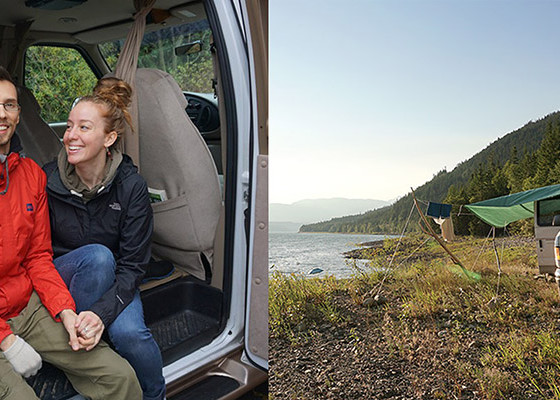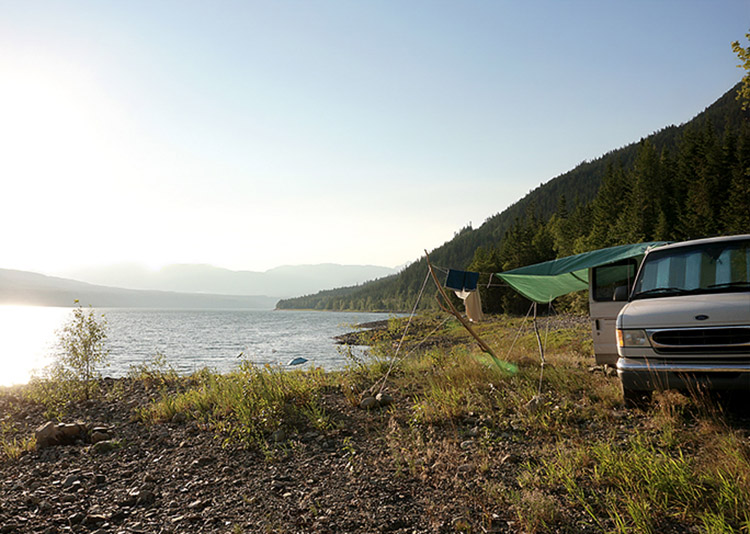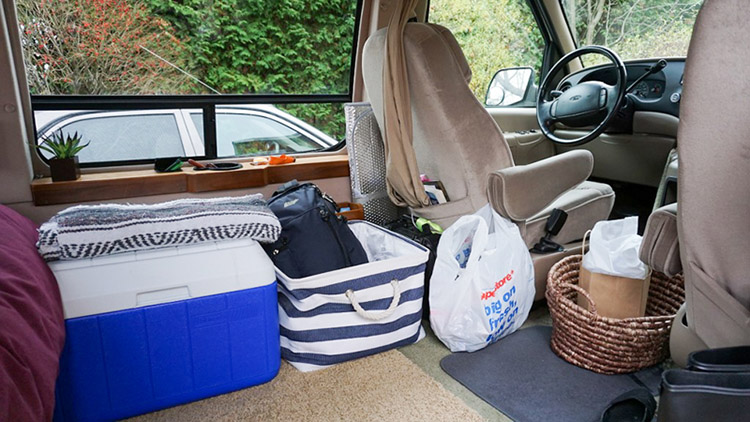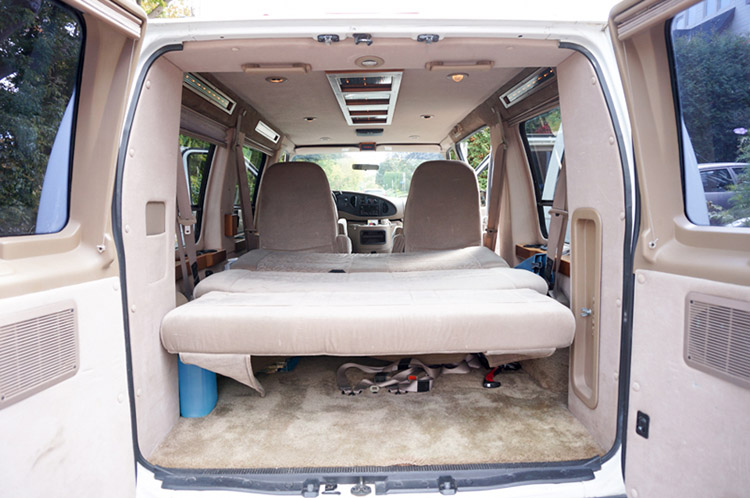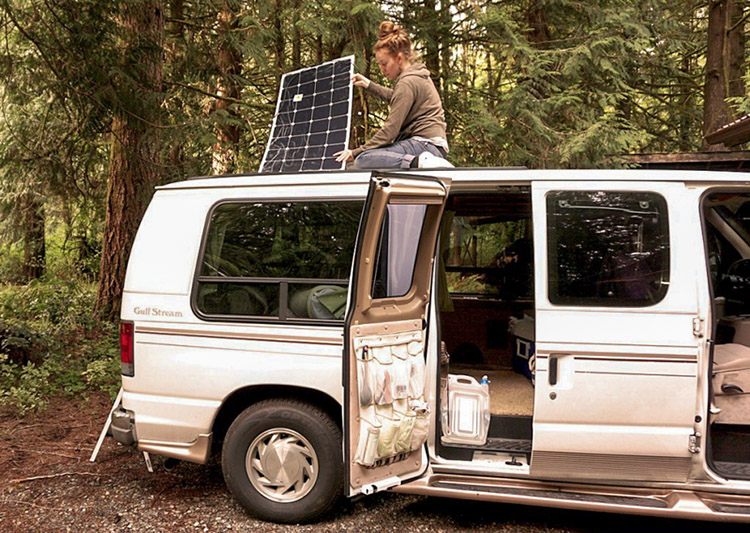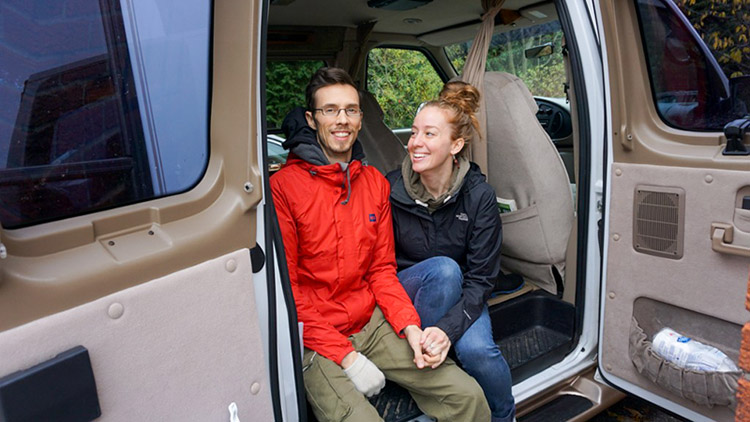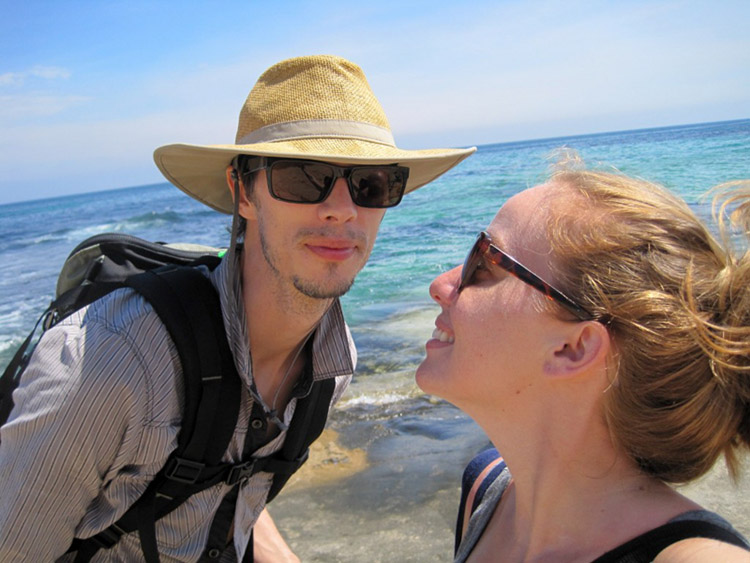Ice covers the winding Snoqualmie Pass in the early winter months, granting only the riskiest of travellers access over the 3,022 foot elevated summit and through to Seattle’s downtown core. The area is part of the Cascade Range of the State of Washington where snow-capped mountains tower over the surrounding cities.
Danielle Chabassol and Mat Dubé are among those trying to get through. The Canadian couple drove their used, 2002 Ford E-150 from their hometown of Ottawa, Canada through the dangerous Chicago rush hour traffic, past Mount Rushmore and by the wide open prairies to get there. At the pass, weather reports warning drivers of threatening conditions cut through the radio. But, rushed to arrive at the house they would be house sitting for over the next five months, they decided to tighten their seat belts and drive on.
